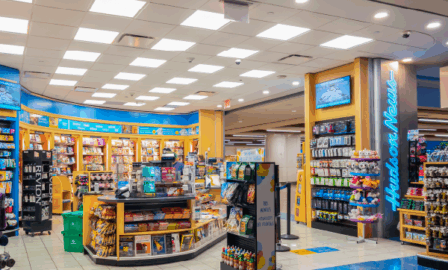Back to Wholesale: Why Retailers are Making the Shift
For retail customers, shopping is an inherently interactive process. Even so, a reported 67% of apparel and 74% of footwear spending is done online. With so much emphasis on providing an authentic brand experience regardless of the channel, brands have experimented with creative ways to demonstrate a strong online presence amidst rises in direct-to-consumer (DTC) eCommerce. Using footwear and apparel retailers as an example, we’re seeing companies look to seek full control over their brand experience, and many, including the likes of Nike, Levi’s, and Ralph Lauren, have dropped wholesale partnerships in recent years to directly interact with their customers. However, regardless of the size of the brand, a DTC strategy is full of challenges and costs that brands are beginning to recognize. Seeking a quick fix, we’re seeing a number of retailers go back to wholesale. Below, we explain why that’s the case.
Back to Wholesale Retail
What is Wholesale?
Wholesale is when a brand sells their products to other retailers instead of to the end user, creating a business-to-business (B2B) transaction. The common misconception that DTC is absolutely more profitable than wholesale often fails to account for higher costs to run DTC operations due to fulfillment, logistical, and marketing expenses. The low barriers to entry into the DTC eCommerce industry means brands are having to spend far more money on advertising to differentiate their product and attract customers.
With experts estimating a 60% increase in customer acquisition costs in the last five years, brands are struggling to turn profits and see a timely return on investment (ROI). This is why companies are turning back to wholesale, and its global market is expected to grow at a compound annual growth rate of 9.1%.
Risks of Wholesale
As the effects of the Covid-19 pandemic set in, retailers adjusted their strategies to better serve consumer footwear and apparel needs. For many brands, this meant prioritizing DTC eCommerce, as customers shopped almost exclusively online due to health concerns. We explore below why brands may have taken a step away from wholesale and lay out some of its shortcomings.
Less Control Over Brand Image & Customer Relations
The implementation of wholesale adds an extra layer separating the brand and its product from its final destination: the customer. In doing so, the brand relies largely on their wholesale partner to provide a smooth customer experience representative of the service they want to provide. Furthermore, it’s difficult to contact customers during their shopping journey and maintain a relationship after purchases are made through a wholesale partner. By shifting to a DTC-focused strategy, brands feel a better sense of control over their brand image and customer experience and retention.
Delayed Feedback and Data
One of the most powerful tools footwear and apparel brands can leverage to improve their strategy is data. When working with a wholesale partner, brands are missing out on survey opportunities, site heat maps and tracking, and collection of customer contact information. Accessibility to data analytics such as these allow brands to improve their personalization of the customer experience and optimize their pricing strategy. As the footwear and apparel market continues to emphasize a personalized experience, data capture is imperative, and wholesale partners can make it more difficult to achieve this.
Benefits of Wholesale
The DTC-only brand is committed to delivering their product directly to customers, controlling the entirety of their brand experience. Brands like Allbirds and Stitch Fix found success in this; however, it’s now far more difficult to grow how these brands once did without high expenditures and little immediate return. Experts are recommending that brands explore wholesale as part of their strategy immediately, and below we elaborate on some of the reasons why.
Grow Brand Awareness and Footprint
One of the key benefits of wholesale is that it provides brands with ways to diversify expand their reach. With one study finding that 54% of US consumers prefer to shop in-store, a brick-and-mortar footprint can be just as important as a brand’s digital one. Partnering with trusted and established retail partners puts a brand’s products on more shelves, building the brand awareness and footprint without having to expense storefront expansion themselves.
After hitting a lull in DTC-only growth, well-known footwear and apparel brand Allbirds began testing the wholesale waters with retail partners like REI in 2022. The deal put Allbirds’ products in 41 of REI’s brick-and-mortar stores and on their website, expanding their reach to customers in online and in-person channels. Growth is challenging, and building a DTC presence can only go so far, which is why brands like Allbirds are turning to wholesale partnerships to continue to reach new customer segments and regions.
Margins and Volume
Typically, a wholesaler sells a larger volume at a lower price, so the notion in retail is that immediate margins are often smaller than if the brand were to go DTC. However, recent analysis by BMO Capital Markets found that wholesale led to higher earnings before interest and taxes (EBIT) margins, challenging the belief that focus on direct lifts retailer margins. A DTC-only strategy entails handling everything from order fulfillment to customer acquisition, which can add up quickly, especially with the rise in returned orders.
In the footwear and apparel industry, Nike is leading the return to wholesale, renewing previously ceased partnerships with third-party retailers Macy’s and DSW. This decision is motivated by Nike’s desire to keep a high volume of inventory flowing and to access customer segments who may not shop through their direct channel. As Nike re-enters the wholesale space, it is likely many others will look to wholesale partnerships to alleviate their in-house operations, move more volume, and improve margins.
Clarkston’s Retail Experts Can Help
The apparel and footwear industry’s emphasis on the DTC-only retail model is showing signs of slowing, with brands struggling to maintain margins, growth, and customers. In all likelihood, a hybrid retail model that utilizes DTC and wholesale channels will be the most optimal solution for many retailers.
Wholesale can help grow your brand awareness, increase your margins, and diversify your revenue streams. There are still deliberate decisions to be made with regards to choosing the strategic wholesale partnership that aligns with your brand’s values and goals. Clarkston’s retail experts are here to assist your company in making the best decision for its future. To learn more about how we can help, contact us today.
Subscribe to Clarkston's Insights
Contributions from Aaron Messer



